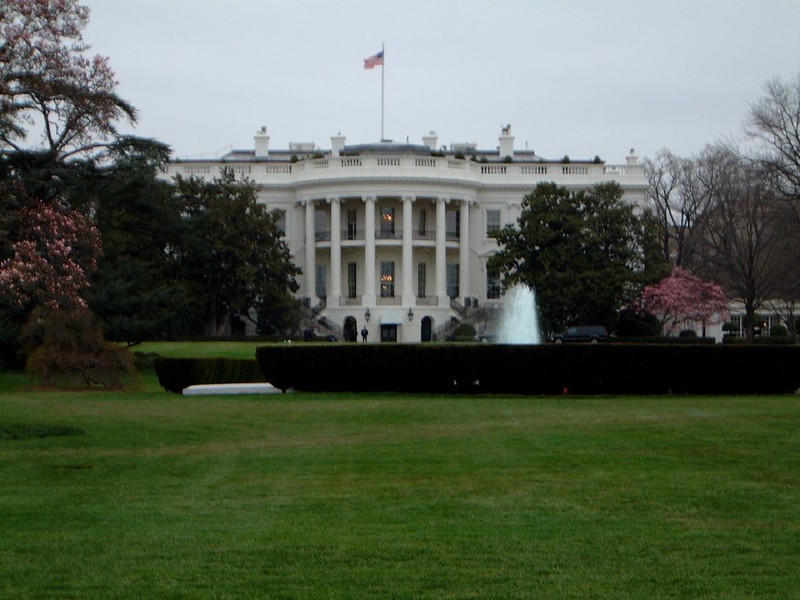President Joe Biden announced on March 2 that he will allow Congress to block the passage of a D.C. bill to overhaul the city’s criminal code.
This would be the first time in more than 30 years that Congress successfully voted to block a D.C. bill from becoming law. Unlike a state, the District may only pass laws with Congressional review.
“I support D.C. Statehood and home rule – but I don’t support some of the changes D.C. Council put forward over the Mayor’s objections – such as lowering penalties for carjackings,” Biden tweeted. “If the Senate votes to overturn what D.C. Council did – I’ll sign it.”
The Republican-majority House last month passed a resolution disapproving of the D.C. bill, sending it to the Democrat-controlled Senate. Sen. Joe Manchin (D-W.Va.) announced he will vote with Republicans to strike down the bill. On March 6, D.C. Council Chairman Phil Mendelson announced he would withdraw the proposed legislation ahead of the planned Senate vote. However, the Senate indicated it would still review the current draft of the bill regardless.
The code, drafted in 1901 by Congress, outlines penalties for crimes including major offenses like assault and murder. It also details penalties for minor offenses such as panhandling — which can result in fines, mandatory community service or even jail time.
Several local lawmakers have criticized the current code, characterizing it as confusing, contradictory and outdated. For example, the law — as written — prohibits people from playing games, such as football, in the street.
The Criminal Code Reform Commission, an independent agency, was formed in 2016 to conduct extensive research and propose changes to the code. It reviewed thousands of pages of documents and made recommendations for revising the outdated criminal code.
Proposed revisions include reducing maximum sentences for crimes such as robberies and carjackings. The bill would have also decriminalized panhandling. Advocates have been pushing for the decriminalization of panhandling nationwide for several years, including the National Homelessness Law Center. Criminalizing panhandling fails to address what causes homelessness, and can make matters worse, according to the law center.
Many low-income residents engage in “crimes of survival,” such as panhandling, that result in unfair policing and arrests, authors wrote in a 2021 DC Police Reform Commission report. These “crimes” are a result of failures of the social safety net, according to the report.
Additionally, the Criminal Code Reform Commission found that enforcement of such laws unfairly targets Black D.C. residents. According to a report by the commission, while Black residents make up about 45% of D.C.’s population, Black residents are responsible for about 75% of panhandling convictions in the District.
The Revised Criminal Code Act was already a contentious point in D.C. politics after Mayor Muriel Bowser vetoed the bill in January. She said there was a need for more community engagement on the bill. Also, the bill contained provisions that she argued went too far. These included lighter sentences for carjackings, armed robbery and home invasions. The D.C. Council overrode the veto less than two weeks later.
The D.C. Police Union has been outspoken in its disdain for the bill and said in a statement that the revisions will lead to “violent crime rates exploding more than they already have” when the council overrode the mayor’s veto. Homicides have increased in the District since the onset of the pandemic, but violent crime dropped 7% in 2022 compared to 2021, according to a Metropolitan Police Department report.
While opponents to the bill say the revisions are not tough enough on crime, harsh sentences are shown to not deter crime, according to the National Institute of Justice. Over 80% of D.C. residents support the law, according to a poll commissioned by the DC Justice Lab.
Several District officials have spoken out against Biden’s decision, including D.C. Attorney General Brian Schwalb.
“Any effort to overturn DC laws degrades the right of its nearly 700,000 residents and elected officials to self-govern—a right that almost every other American has,” he tweeted on March 2.
Many local leaders called for statehood for D.C. in the midst of the news, and for the end to Congressional meddling in District laws.
“The District of Columbia is perfectly capable of governing itself,” Ward 6 Councilmember Charles Allen said in a press release. “We are not subjects, and we unequivocally reject anything less than full control of our own affairs.”








